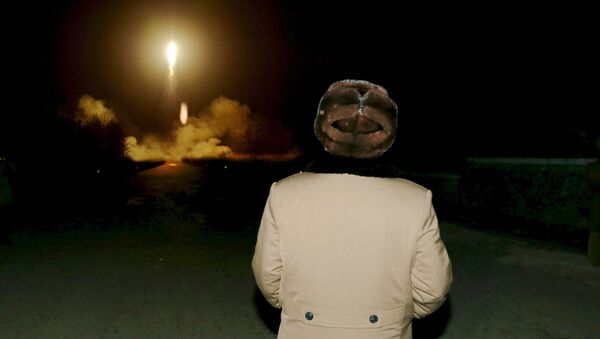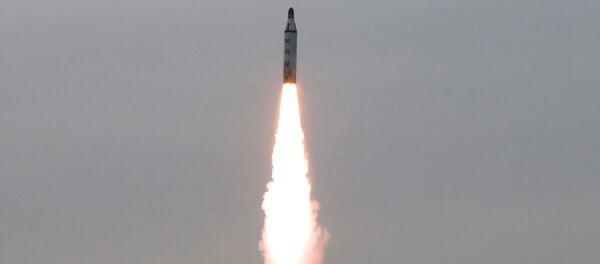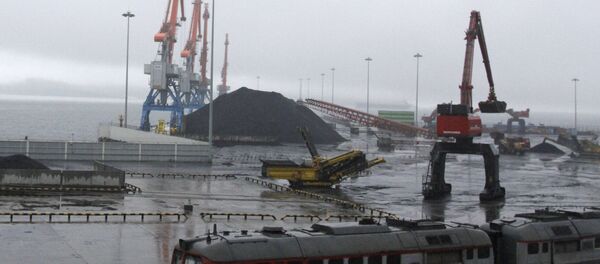The experts who believe that North Korea will not respond with new provocations to the United Nations Security Council’s (UNSC) resolution explained that by Pyongyang’s striving to reach dialog with the new US administration. Until there is any possibility of president-elect Donald Trump taking a more constructive stance on the North Korean nuclear issue, it is not the interest of Pyongyang to become a target of the international community’s criticism again.
“If the Security Council adopts the resolution, North Korea will demonstrate its resentment, of course, but with assaulting claims only. It is unlikely to carry out new nuclear or missile tests,” Park Won-gon, an international relations professor at Handong Global University, told Sputnik Korean.
“From the perspective of North Korean diplomacy, Donald Trump is a favorable partner for building up dialog with the USA. And until Trump’s administration has decided its policy on Korea, Pyongyang will not make any provocation that may irritate Washington,” Park assumed.
Nevertheless, there is a probability that North Korea could go as far as intermediate- and short-range missiles launches, and even brief military clashes with South Korea, other experts said.
“The UNSC’s new resolution was a hard blow to Kim Jong-un, so there might be Hwasong-10 (BM-25, Musudan) missile launches and minor military actions against South Korea with the use of conventional weapons,” Cho Han-bum, an analyst at the Korea Institute for National Unification told Sputnik Korea.
The expert added that despite all this, new nuclear tests or intercontinental ballistic missile launches will not be carried out before the talks with Trump’s administration.
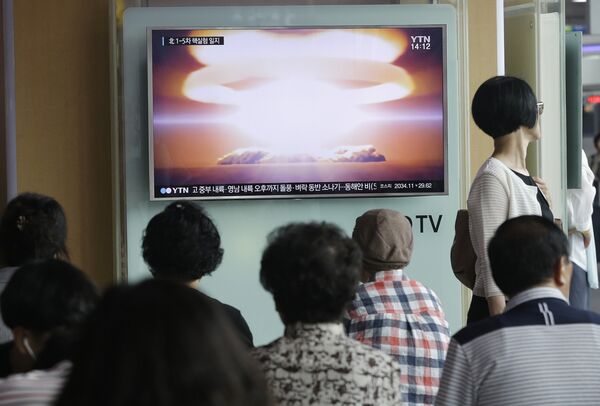
The experts expressed different opinions on the efficiency of the new sanctions as well.
According to Cho Han-bum, extended sanctions will force Pyongyang to make serious adjustment to its nuclear strategy.
North Korean exports reached $3 billion, with $2.5 billion attributable to China, while coal and iron ore are the main export products. Any quantitative limits put on it will become a serious crack-down on North Korea.
“Sanctions have already led to the country's trade deficit of $700-800 million. North Korea somehow managed to cover this gap with of $500-600 million earned by its workers abroad. But if the new sanctions are adopted the deficit will grow,” Cho Han-bum said.
Park Won-gon, on the contrary, noted that the new resolution only follows the line of the UNSC’s previous resolution 2270, and the new sanctions will be as ineffective as previous sanctions were.
“Despite China’s call to resume negotiations on denuclearization, its shadowy trade with North Korea never stopped. In October their trade turnover only grew. New sanctions will only weaken China’s aspirations to fight illegal traffic,” Park said.
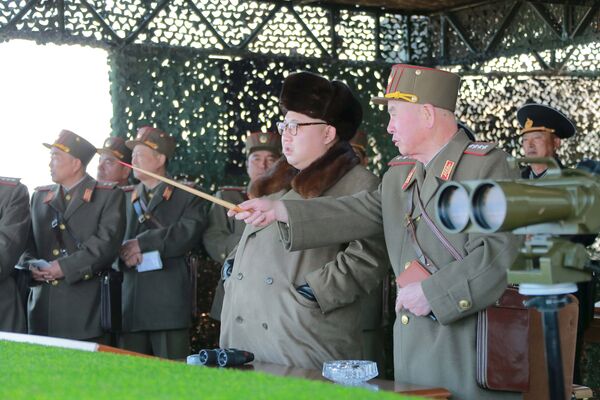
The experts noted that the Security Council had difficulties negotiating the new draft resolution with China and Russia. These countries demonstrated their approval of the idea of denuclearization on the Korean Peninsula but were somewhat apathetic about the sanctions.
“China and Russia joined the sanctions in order to condemn North Korean nuclear provocations, but they do not expect the sanctions to solve the denuclearization problem,” Kim Heung-kyu, director of the Ajou University China Policy Institute, told Sputnik Korean.
According to the expert, both China and Russia espouse nuclear disarmament, but their interests differ from the motives of South Korea or the USA. From their perspective, the new resolution was a compromise which did not affect their strategic interests, Kim believes.
He assumed that neither China nor Russia boycotted the resolution because both countries are interested in repairing their relations with Washington after the chance given to them by Trump’s election.

